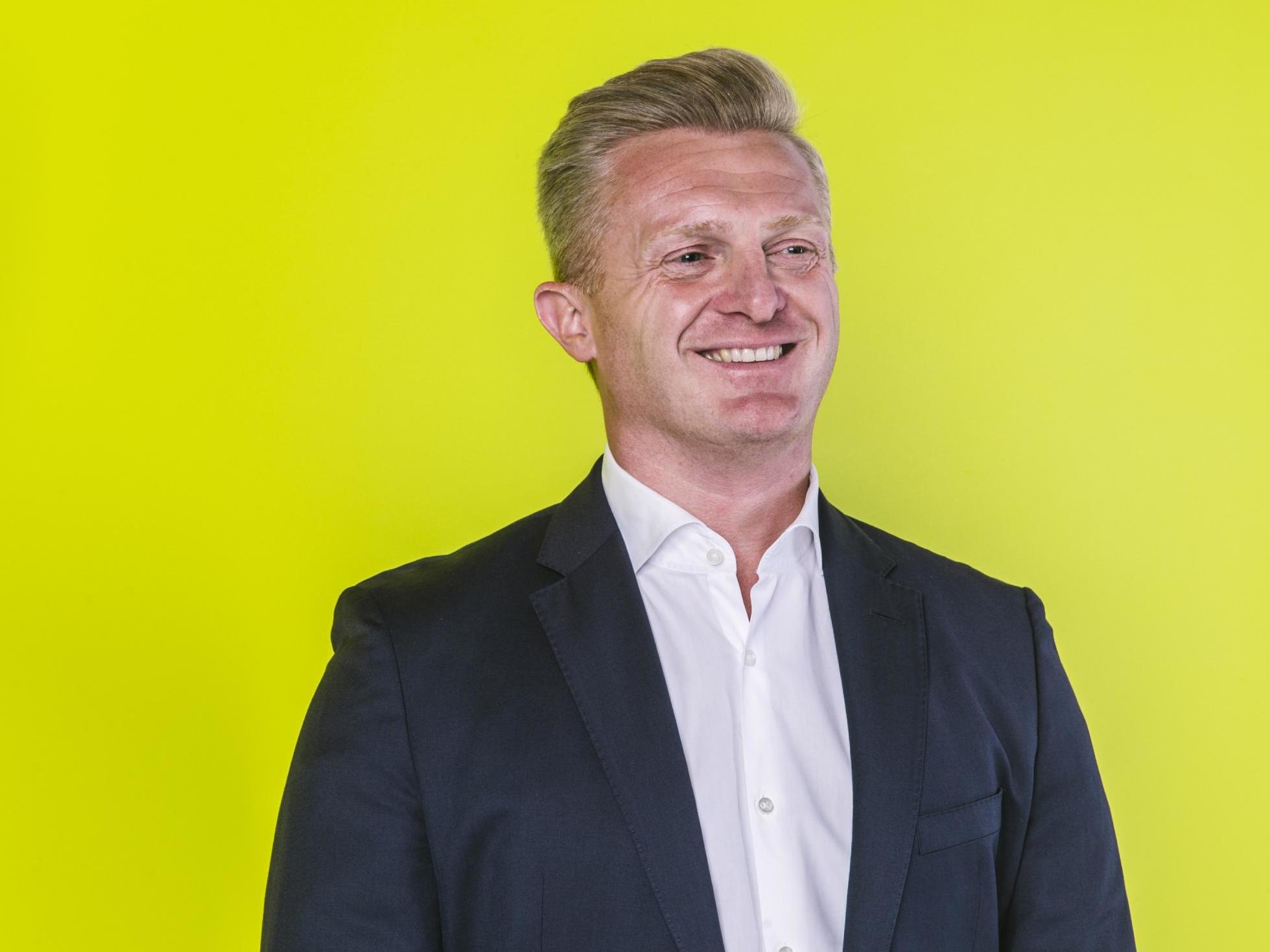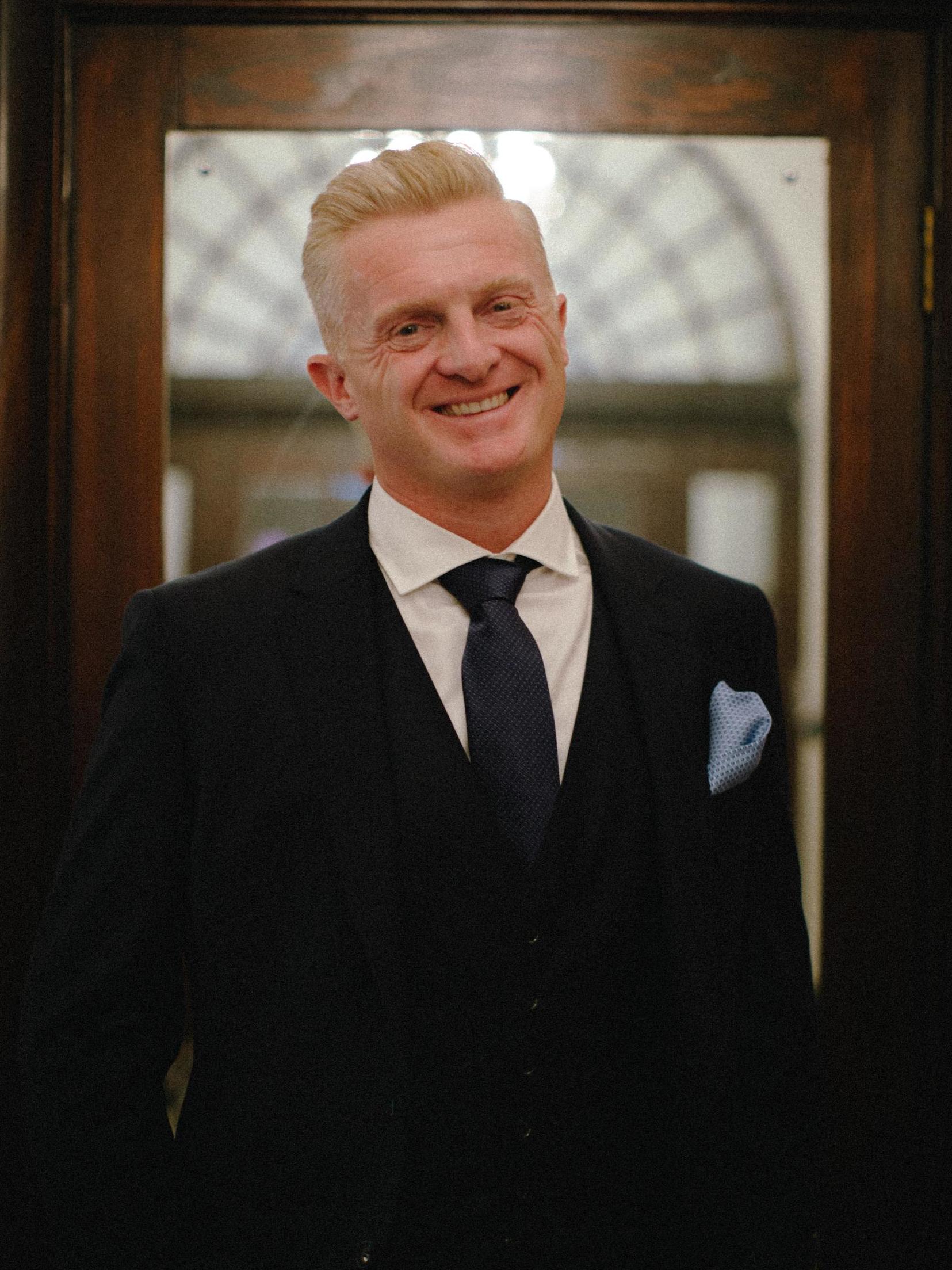How Darren Ryemill helps people get into work and on their search for happiness
The founder and ex-CEO of Opus Talent Solutions spoke to Martin Friel about getting non-tech people into tech, and his app which helps others find what makes them happy and how to put it into action

You’re in the middle of a terminally dull meeting, listening to someone drone on about something that appears to be vitally important to them but nobody else. You’re staring out of the window, not listening, just gazing and wishing you could be out there. Anywhere but in the meeting.
And then it hits you. The feeling that if you only had the courage or didn’t need the money, that you could just get up and walk out, never to return.
Anyone who has ever worked in an office has had this moment but very few of us have ever been able to follow up on that fleeting fantasy.
But one person lucky (or brave) enough to have done it is Darren Ryemill, founder and former CEO of Opus Talent Solutions, a tech-focused recruitment agency. Set up in 2008, Opus operates out of the UK, Australia, the US, the Netherlands and Hong Kong generating nearly £80m in revenue in 2019.
By any measure, it’s a successful, global company, built from scratch. So why walk away?
“I was sitting in a board meeting and people were going on and on and I thought ‘what the f*ck?’” says Ryemill.
“I love things with energy. If it’s fun, I’m in. Then one day you are sitting in board meetings with accountants, lawyers and HR people telling you what you can and can’t do. I thought – this is shit.”
So in 2018, he decided to do something about it. He found a replacement for himself as CEO and now spends most of his time developing new ideas inside and outside of Opus, while doing his best to “minimise the formal stuff”.
But while he has stepped back, he still spends a lot of time thinking about businesses and, at the moment, how they will react to the widespread lockdown caused by Covid-19.

Ryemill believes that the sudden requirement for businesses to embrace technology will result in a surge in demand for tech-based skills, it will also signal the end of organisations that view having a digital capability as a choice.
“Companies that were ahead in terms of their use of tech before all of this will have stolen a march on competitors. It’s not about the brand, it is about tech advancement,” he believes.
He says that the best companies are those that are not afraid to embrace change, in whatever form it arrives.
“The tech revolution we are in is only going to be accelerated by [Covid-19]. Companies will still want to do cool tech stuff because it’s cool, but it will become a big defensive play too. The question everyone will ask themselves now is ‘what happens if… ’?
“Businesses that don’t embrace technology will just become devalued. Why would you invest in a business that could be broken at any time?”
He has reason to believe (or hope) that the use of technology will become a fundamental requirement for any business. One of the firms that form part of the Opus group is _nology, a company that trains people in tech skills and he hopes it will form part of the answer to the global shortage of talent in this space.
But more than that, he hopes that by taking non-STEM graduates and giving them the practical and linguistic skills to operate in a tech-driven world, that greater diversity will be brought into what is essentially a monoculture. If everyone is going to need tech skills, he argues, they can’t all come from the same social and educational background.
“In any industry, if you are going to be a CEO of the future, you are going to have a handle on tech. It will be the business language of the future so if you don’t have those skills, you will not be the CEO,” he says.
While he has big dreams for this part of the business, it appears he has learned the lessons of that board meeting in 2018 and is not about to replicate the experience by dedicating himself to building up another company. When he made the decision to step back, he took stock of more than just his working life.
“I wasn’t happy with a number of aspects of my life. I was giving everything to the business and I was going through a very stressful divorce,” he explains.
I created a map of me, and I realised I wasn’t doing the things I loved doing and I thought ‘what is going on here’?
“For a long time, running the business was easy and then all of a sudden complexity came in, stuff I wasn’t enjoying. There always seemed to be a problem.
“I thought if I’m not having fun, what’s the point?”
So he approached the problem in much the same way he would have approached a business problem – he broke it down into its component parts and tackled them one by one.
“My relationship with work, with friends and family, finances, everything – I mapped it all out. I created a map of me, and I realised I wasn’t doing the things I loved doing and I thought ‘what is going on here?’”
He scored himself on various factors in his life in terms of how happy it made him and how much he was doing it. If he thought he was scoring lower than where he would like to be, he focused on that and figured out a way to increase the score to where he wanted it.
And the result is that he is much happier now than he has been for a long time.
“I like myself a lot more now,” he says, adding “whether or not anyone else does is down to them”.
“I used to think that being stressed gets great results, that you can’t grow without breaking things. But everything in life has a flipside – there is a consequence. If you decide to do nothing about the situation, eventually you will become pissed off and depressed about it.”
But the urge to build seems to never leave him, even when he is dealing with his own happiness. Having advised friends and family to try his approach and following their positive response, Ryemill is in the early stages of developing the concept it into an app – MyHappyApp.
The difference now, it appears, is that he is engaged in something he loves.
“I’m an entrepreneur and I love business and I don’t think I’ll be happy if I don’t have elements of that in my life,” he says.
“If I can do things I love and care about, then results will come.”
Join our commenting forum
Join thought-provoking conversations, follow other Independent readers and see their replies
Comments